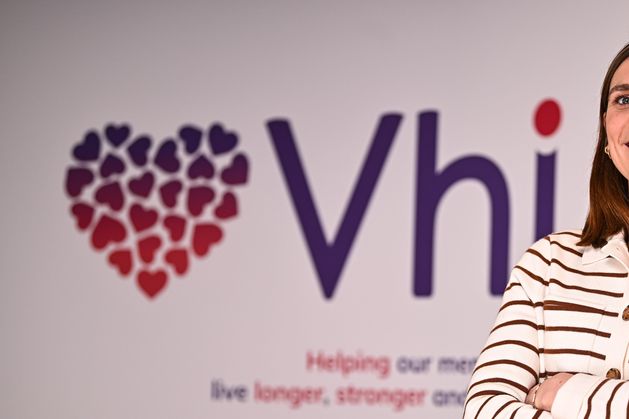Fitness
‘It’s about knowing your body’ – VHI women’s health expert offers advice for exercise in all life stages ahead of mini marathon

Research by VHI found 77pc of women believe running makes them feel better during their period. However, 18pc of the 500 women surveyed said they stopped running altogether while menstruating, mainly due to fatigue or lack of motivation.
Dr Amélie Roland said learning how to adapt your exercise to these issues was down to the individual and some may benefit from opting for different exercises over running.
“It’s about knowing your body because the science can’t provide us with a black and white answer”
“The main difficulty with the menstrual cycle is that it’s a very individual experience. Every women will experience different symptoms and at a different intensity,” Dr Roland said.
“For some people, the symptoms are quite overwhelming just before menstruation and some people more during their periods, and the intensity can differ from month-to-month.
“It’s about knowing your body and knowing yourself because the science can’t provide us with a black and white answer. It’s up to the individual to track their cycle, try different things during their period and seeing what suits you best. That’s the best approach.”
She said getting back into the swing of exercising after giving birth was also individual, and the process started with giving the body a rest and making sure you felt comfortable progressing further.
More than 20,000 women take part in the mini-marathon in Dublin every year. Photo: Sportsfile
“You would need a rest as a new mother. It really depends on how the delivery happened. Some women might experience a more complicated delivery. Whether it was a C-section or vaginal birth will have a major impact on how you can go back to physical activity.
“Everyone should check with their own doctor after delivery, but the guidelines would first be to rest. Then after two weeks you can go back to pelvic exercises, core exercises, then evolve to strength training and walking before gradually going to running.”
Around menopause there is a decrease in muscle mass so we need to do strength training to maintain that
Changes to exercise may also be brought by the menopause or peri-menopause, a stage of life Dr Roland said can be “very, very challenging”.
“There are so many changes – physical and mental changes – associated with it. There’s a big drop in physical activity at that age, mainly because of joint pain and fatigue. The body and metabolism are changing. Around menopause there is a decrease in muscle mass as well, so we need to so some strength training to maintain that.
“Bone density will drop which is completely normal. It’s partly due to the oestrogen level being reduced but strength training will help maintain it.”
Dr Roland said the Women’s Mini Marathon offered a great opportunity for participants to meet, share their experiences and find a support network.
“There are different stages of life where women drop out of physical activity and it starts at puberty,” she said.
“A woman can become a mother and have less time for herself. That can lead to less confidence and less drive to exercise, and it’s so important on so many levels to be active as much as you can.
“That’s why the Women’s Mini Marathon is so important. You can find a group and find other women at different levels of fitness, different body shapes, different ages and that can really help you get back into it, feel that sense of community and feel empowered.”
Dr Amélie Roland is a VHI women’s health specialist. The sold-out 2024 VHI Women’s Mini Marathon takes place in Dublin this Sunday










